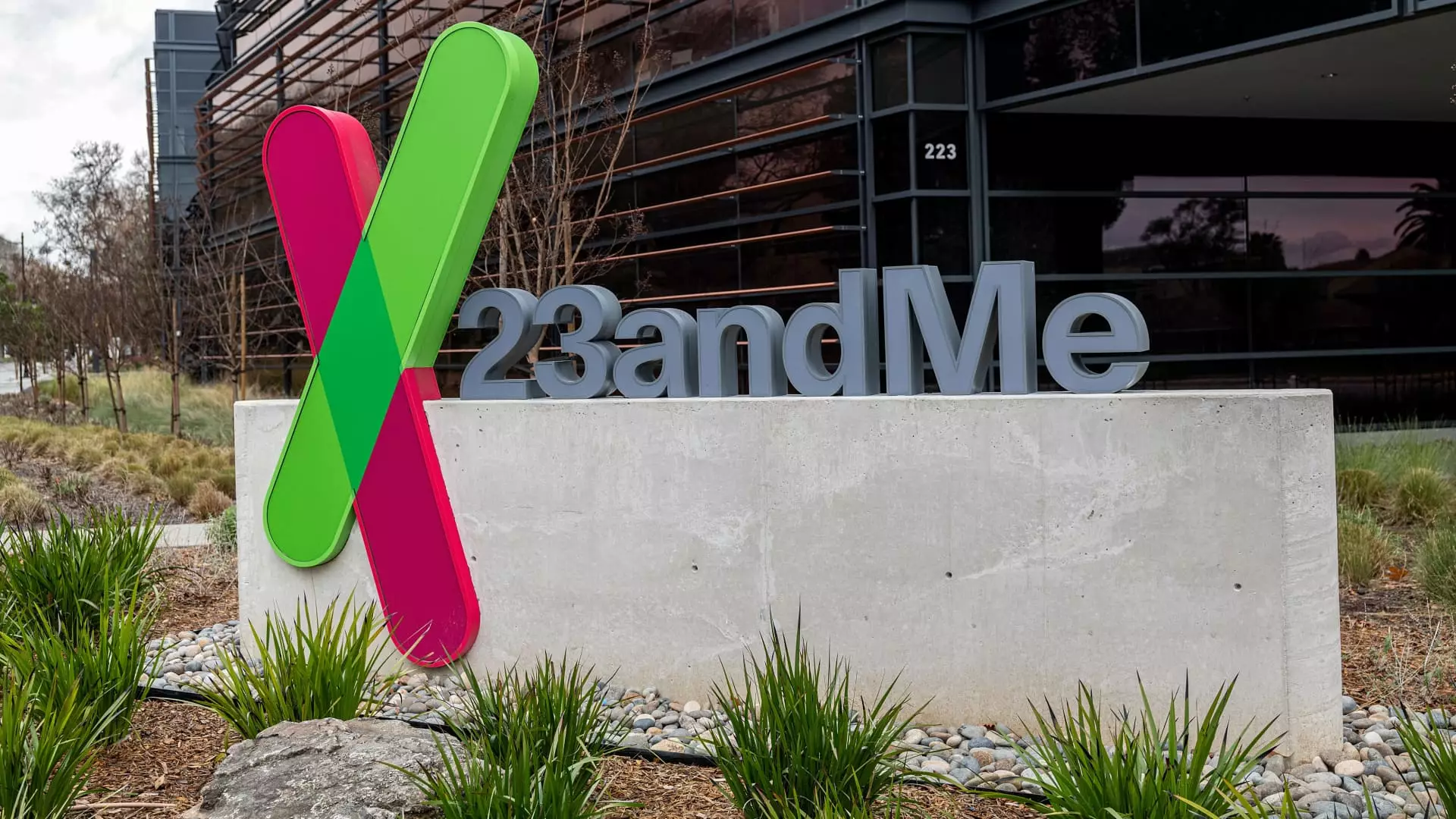In a shocking turn of events for the biotechnology and personal health industries, 23andMe has filed for Chapter 11 bankruptcy protection. This marks a significant shift in a company that promised to empower individuals through the democratization of genetic information, providing at-home DNA testing kits that unlock insights into ancestry and health. With its genetic database poised to enter the marketplace, concerns over privacy and data security become paramount. The issue at hand isn’t merely financial; it’s profoundly personal, touching on the intimate nature of genetic data.
23andMe, once heralded as a pioneering force in consumer genetics, faces increasing scrutiny after a breach in October 2023 that compromised the sensitive information of nearly 7 million customers. The genetic data collected by 23andMe reflects individual identity, and with that comes a unique vulnerability. To render this sequence fully anonymous is impossible, as stated by the National Human Genome Research Institute. Thus, the implications of a potential sale or mishandling of this information extend far beyond corporate restructuring and find their roots in the very fabric of personal privacy.
The Insecurity of Genetic Information
As 23andMe embarks on this tumultuous journey, the call for caution is loud and clear. California Attorney General Rob Bonta has urged residents to reconsider the implications of having their genetic data reside within a financially staggering corporation. “Given 23andMe’s reported financial distress, I remind Californians to consider invoking their rights,” he stated. This sentiment resonates not only in California but across the country, where consumers must think critically about the companies they trust with their most private information.
Experts emphasize that genetic data is not just another dataset; it’s a “blueprint of your entire biological profile,” as expressed by Adrianus Warmenhoven from NordVPN’s security advisory board. This statement encapsulates the gravity of the situation—poor data management and security practices could catalyze identity theft, insurance fraud, and other heinous crimes. Warmenhoven’s advice to consumers is pragmatic but laced with urgency: monitor your digital footprint, sign up for identity theft protection services, and consider the companies that you allow access to your personal data.
The Consumer’s Responsibility
This crisis exemplifies the necessity for consumers to take control of their genetic data actively. 23andMe maintains that customers can delete their accounts and data but this may not be as straightforward as it sounds. Users are required to navigate through a series of steps to ensure their data is deleted permanently—an intentional hurdle that raises questions about the company’s true commitment to user privacy.
The deletion process, detailed on their platform, suggests that while users can take proactive measures, the system has inadvertently created an illusion of security. Should customers trust a platform that has faltered in the face of privacy breaches? Are these complexities just another way to deter consumers from retrieving their information? The responsibility increasingly lies with individuals to understand and navigate their rights in this digital landscape.
The Future of Genetic Data and Consumer Trust
As potential buyers circle around 23andMe’s assets, the future of genetic data privacy hangs precariously in the balance. While the company assures that customer data will be treated with respect through the sale process, skepticism is warranted. With every passing day, data troves like those held by 23andMe become hot commodities, and the idea of corporate integrity in managing such sensitive information can no longer be taken at face value.
“We remain committed to our users’ privacy and to being transparent…” the company claims in its FAQ regarding the bankruptcy filing. However, this narrative clashes with recent history, where consumer trust has been severely compromised. As more companies venture into the genetics space, the onus will also fall on them to build robust systems that prioritize transparency and ethical handling of genetic data.
The potential fate of 23andMe’s customer data not only impacts those directly affected but also serves as a case study for emerging genetic testing companies. As awareness grows, so does the collective responsibility of consumers to take control. We exist in a new digital frontier where personal data transcends simplistic labels and implications, urging us to act with diligence and foresight. Trust, after all, is a currency that once lost is not easily regained.


Leave a Reply